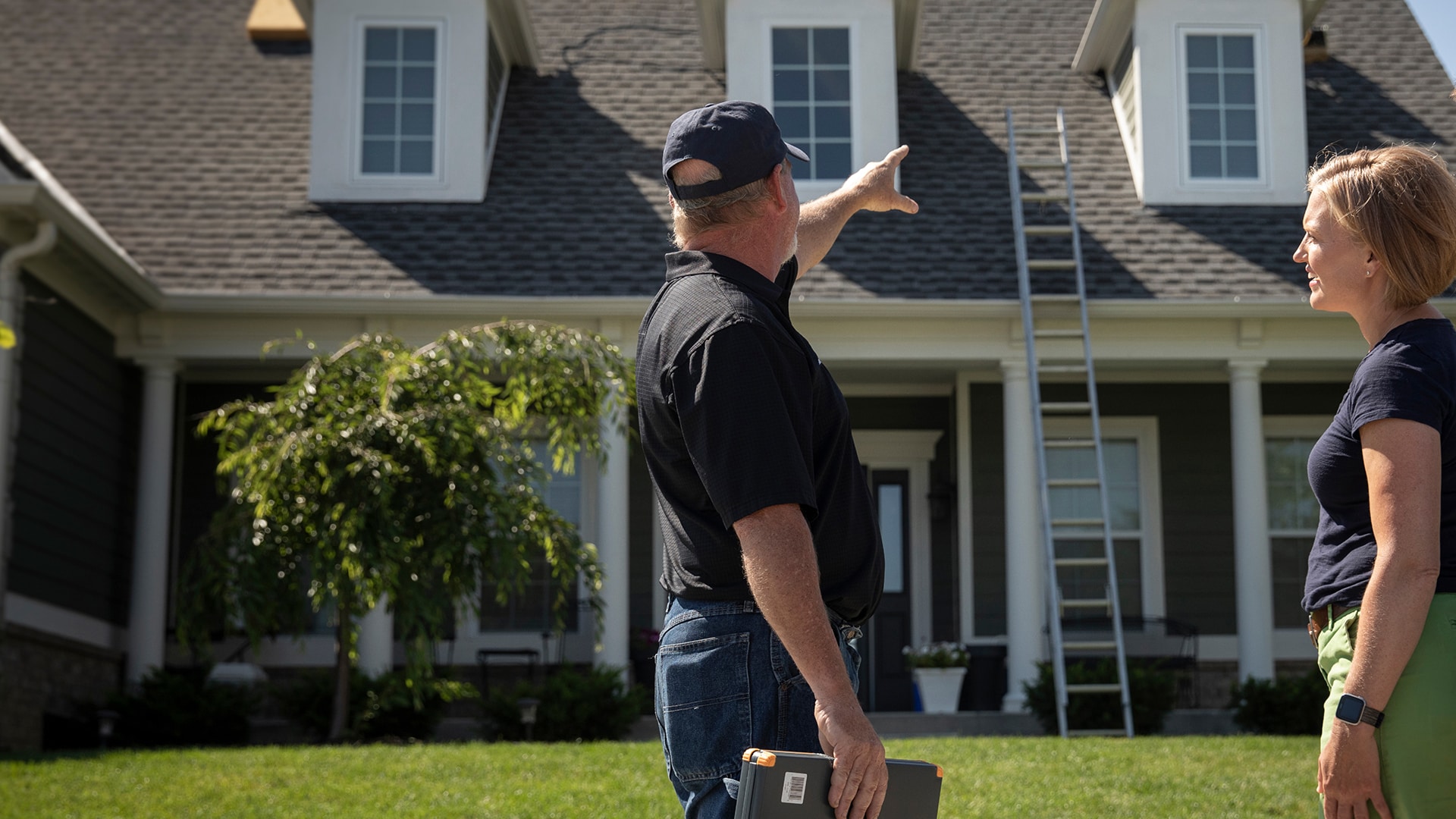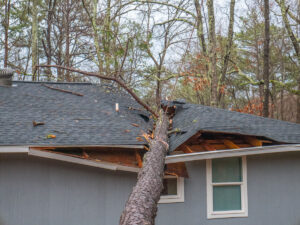How to Choose the Right Contractor for Roof Storm Damage Repair
Storms can leave a trail of destruction, and one of the most vulnerable parts of any home is the roof. High winds, hail, and heavy rain can cause extensive damage, requiring immediate repairs to prevent further structural issues. Finding the right contractor for roof storm damage repair is crucial to ensuring quality workmanship and protecting your home from future problems. With so many options available, it can be overwhelming to choose a reliable professional. Understanding what to look for in a contractor can make the selection process easier and help you avoid costly mistakes.

Assess the Extent of the Damage
Before reaching out to a contractor, it’s essential to evaluate the extent of the damage. If it is safe to do so, inspect the roof from the ground or use binoculars to look for missing shingles, leaks, dents, or other visible signs of damage. Interior signs such as water stains on ceilings or walls also indicate roof damage. While a professional assessment is still necessary, having a general idea of the damage can help you communicate your concerns effectively when speaking with potential contractors.
Verify Licensing and Insurance
A reputable roofing contractor should have the necessary licensing and insurance to perform storm damage repairs. Roofing requirements vary by state, so it is important to check local regulations to ensure the contractor meets the legal requirements. A valid license demonstrates professionalism and a commitment to industry standards. Additionally, insurance coverage is critical to protecting both the homeowner and the workers. Liability insurance ensures that any accidental damage to your property is covered, while workers’ compensation protects employees in case of injury. Without proper insurance, you could be held financially responsible for any accidents that occur on your property.
Look for Experience in Storm Damage Repair
Not all roofing contractors specialize in storm damage repairs. Some may focus on new roof installations, while others handle routine maintenance. Choosing a contractor with experience in storm-related repairs is essential, as they understand the complexities of insurance claims, emergency repairs, and working with storm-damaged materials. Ask about their past projects, how long they have been in business, and whether they have handled similar damage before. An experienced contractor will be able to identify potential hidden issues that an inexperienced roofer might overlook.
Research Reputation and Customer Reviews
A contractor’s reputation is a strong indicator of their reliability and quality of work. Research online reviews from previous customers to get an idea of their level of service. Websites such as Google Reviews, the Better Business Bureau (BBB), and contractor-specific review platforms can provide insight into customer experiences. Look for consistent positive feedback, timely project completion, and professional communication. If a contractor has a history of unresolved complaints or poor customer service, it may be best to look elsewhere. Additionally, asking for references from previous clients can provide firsthand accounts of the contractor’s work quality and reliability.
Request a Detailed Written Estimate
A reliable contractor should provide a detailed written estimate that outlines the scope of work, materials to be used, labor costs, and the estimated timeline for completion. This transparency helps prevent unexpected charges or disputes later on. Avoid contractors who give vague estimates or refuse to provide written documentation. A well-documented contract also ensures that both parties have clear expectations, reducing the risk of misunderstandings. If a contractor pressures you into signing a contract without allowing you time to review it, this could be a red flag.
Beware of Storm Chasers and Scams
A fter a major storm, some contractors, often referred to as “storm chasers,” travel from one disaster-affected area to another, offering quick and cheap repair services. While some may be legitimate, many take advantage of desperate homeowners and provide substandard work before disappearing. Be cautious of contractors who knock on your door unsolicited, demand full payment upfront, or pressure you into immediate decisions. Verify their business location, check their credentials, and ensure they have a proven track record in your local community before hiring them.
fter a major storm, some contractors, often referred to as “storm chasers,” travel from one disaster-affected area to another, offering quick and cheap repair services. While some may be legitimate, many take advantage of desperate homeowners and provide substandard work before disappearing. Be cautious of contractors who knock on your door unsolicited, demand full payment upfront, or pressure you into immediate decisions. Verify their business location, check their credentials, and ensure they have a proven track record in your local community before hiring them.
Understand the Insurance Claim Process
If your roof damage is covered by insurance, choosing a contractor who is familiar with the claims process can be highly beneficial. A reputable roofing contractor can help document the damage, provide detailed repair estimates, and work directly with your insurance company to streamline the claim. Be wary of contractors who claim they will handle the entire insurance claim for you, as this can sometimes lead to fraudulent practices. Instead, look for a contractor who will assist you in understanding your policy and provide accurate documentation to support your claim.
Check Warranty and Workmanship Guarantees
A trustworthy roofing contractor should offer warranties on both materials and workmanship. The manufacturer’s warranty typically covers defects in roofing materials, while the contractor’s warranty ensures that the installation meets industry standards. Understanding the terms of these warranties is essential in case issues arise in the future. If a contractor does not provide a warranty or refuses to put guarantees in writing, it may indicate a lack of confidence in their work.
Ensure Clear Communication and Professionalism
Good communication is key to a successful roof repair project. From the initial consultation to project completion, the contractor should provide clear updates, answer questions promptly, and address any concerns professionally. Delays can sometimes happen due to weather conditions or supply chain issues, but a reputable contractor will keep you informed and provide realistic timelines. If a contractor is difficult to reach, avoids answering your questions, or lacks transparency, it could be a sign of potential problems down the road.
